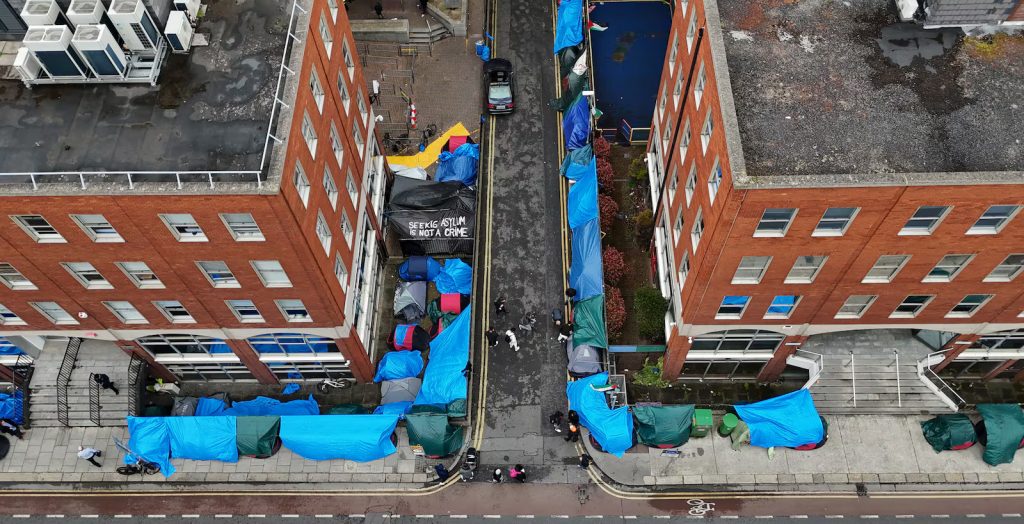Ireland has announced a new scheme that will give migrant families up to €10,000 if they agree to withdraw their asylum applications and return home. The move comes as the country struggles with a severe housing shortage, leaving thousands of asylum seekers without proper accommodation.
The voluntary return programme, already in place, provides financial help for people without legal status who choose to return to their home countries. Under the new plan, the government will increase the grant to €2,500 per person, capped at €10,000 per family. Officials say this will help ease pressure on Ireland’s asylum system, which has seen record demand in recent years.
The scheme will apply to migrants who lodged asylum claims before September 28 and are still waiting for a decision. Taoiseach Micheál Martin defended the plan, saying it was a practical way to help those unlikely to win asylum status while also reducing the costs to taxpayers. He argued that giving people a financial incentive to return made sense both for the individuals and for the system as a whole.
Processing asylum applications costs Ireland around €122,000 per person, according to government figures. At the same time, asylum seekers cost nearly £70 per day to house, a figure that has risen sharply in the past two years. With accommodation stretched thin, many migrants are being forced to sleep in tents or temporary shelters.
Critics, including members of the Social Democrats, accused the government of using the plan as a “right-wing dog whistle” to appeal to anti-immigration sentiment. However, Martin dismissed the criticism as “excessive” and “misplaced,” insisting the goal was to manage the crisis fairly and effectively.
Anti-migrant protests have grown across Ireland, with thousands joining demonstrations earlier this year over rising arrivals and strained public services. Latest figures show that more than 1,100 people left Ireland voluntarily by mid-September under the previous scheme, which offered smaller payments. This was a 129% increase compared to the same period in 2023.
Ireland recorded 18,560 asylum applications in 2023, the highest ever, though only about 30% were approved. At the same time, overall migration reached 150,000 people, the highest level in 17 years. Among them were 100,000 Ukrainian refugees, alongside arrivals from Africa and the Middle East.
Today, nearly 33,000 asylum seekers are being housed across Ireland, compared with just over 7,000 in 2017. The Irish Refugee Council recently reported that a record 3,001 asylum seekers were homeless, underlining the urgent need for solutions. The government hopes that the new €10,000 offer will encourage more families to return voluntarily and ease pressure on housing and public services.

